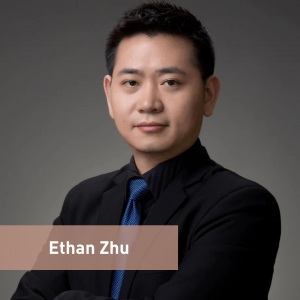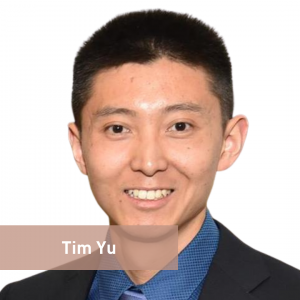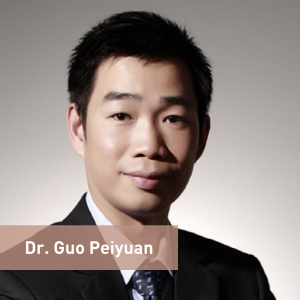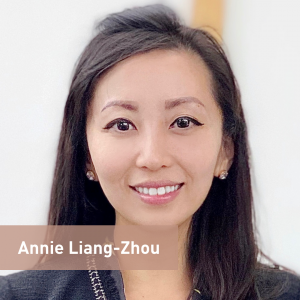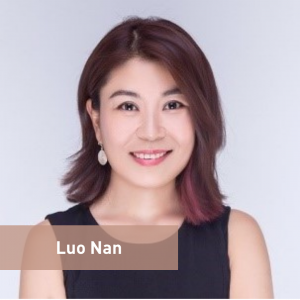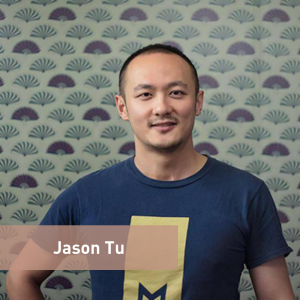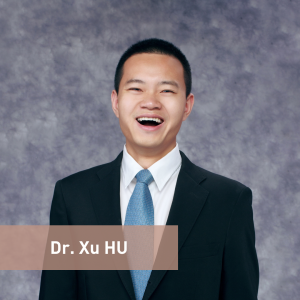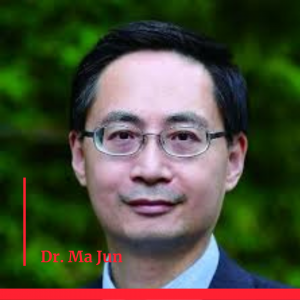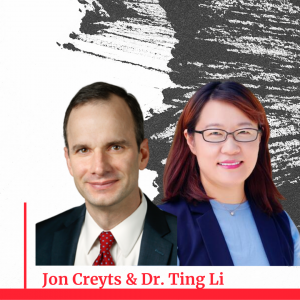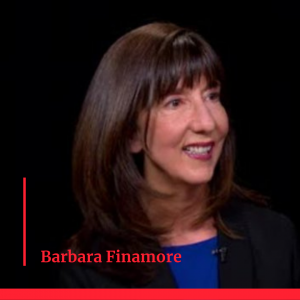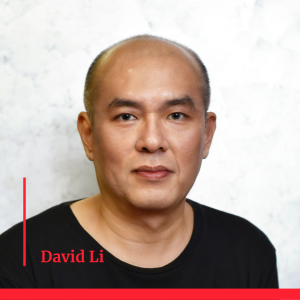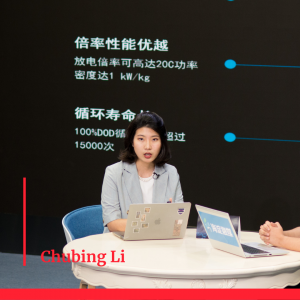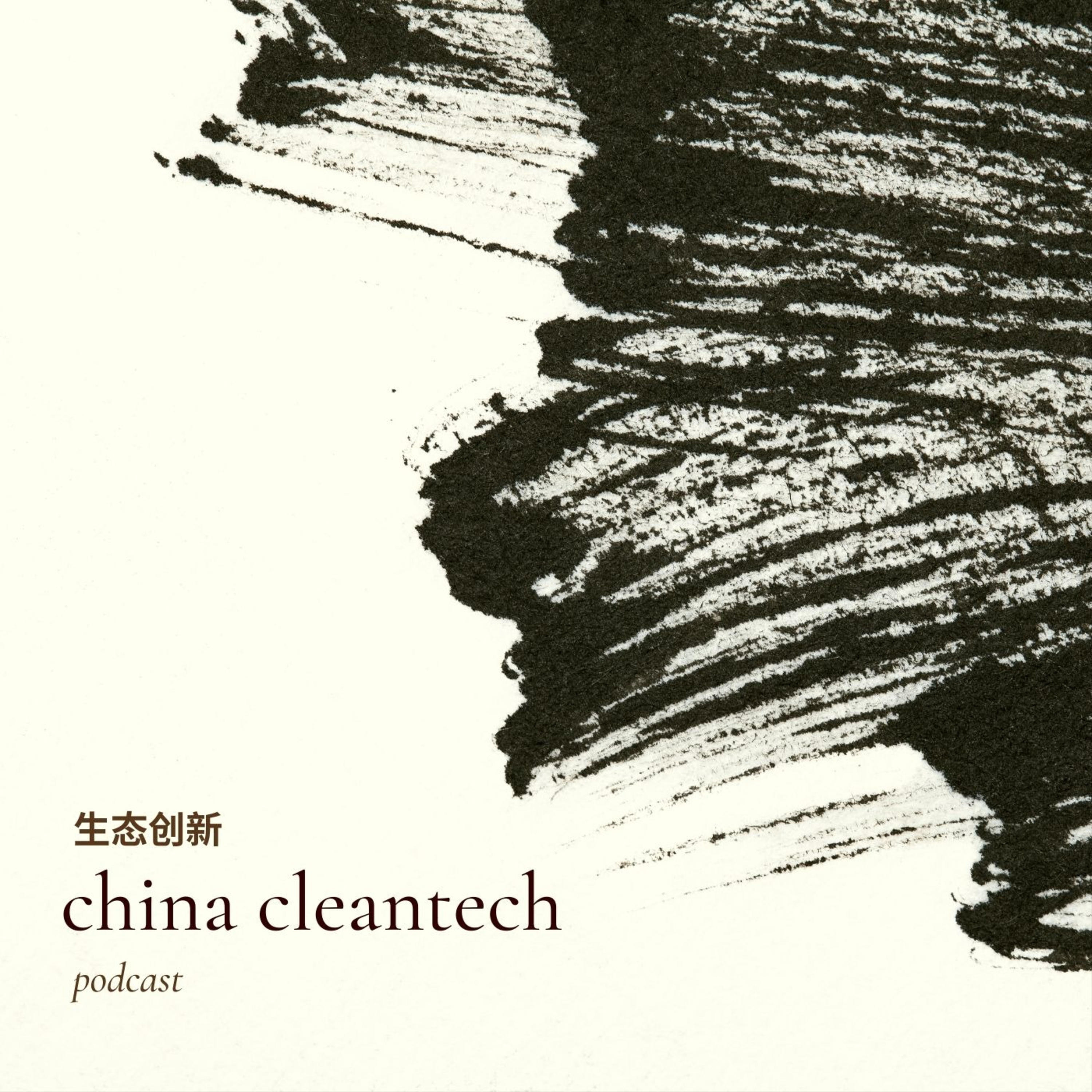
China Cleantech 生态创新 features China-connected cleantech innovations and innovators. Co-hosts Andrew Chang and Marilyn Waite offer critical commentary of green economy endeavors that impact the world’s decarbonization efforts. Learn more at chinacleantech.co and subscribe to our newsletter here: https://bit.ly/322Ty4S.
In our last episode of Season 4, we speak with Alpha Wang, Founder and CEO of TerraQuanta (大地量子). TerraQuanta is a geospatial analytics startup that uses artificial intelligence to access and assess climate-related physical risk data. Join us as we explore the benefits of having a Chengdu-based business, as well as the competitive advantage of TerraQuanta in this crowded space.
Subscribe to the China Cleantech podcast newsletter here.
Relevant links:
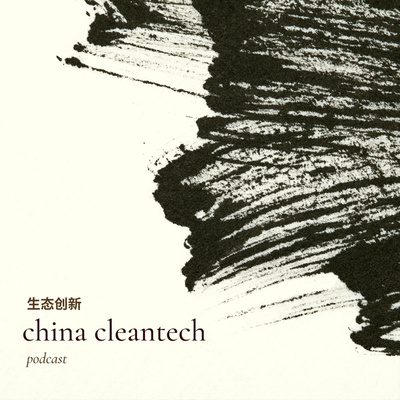
Season 4, Episode 6: Dr. Alpha Wang – TerraQuanta
In our last episode of Season 4, we speak with Alpha Wang, Founder and CEO of TerraQuanta (大地量子). TerraQuanta is a geospatial analytics company that uses artificial intelligence to access and assess climate-related physical risk data. Join us as we explore the benefits of having a Chengdu-based business, as well as the competitive advantage of TerraQuanta in this crowded space.
Subscribe to the China Cleantech podcast newsletter here.
Relevant links:
- TerraQuanta: https://www.terraqt.com/
- Alpha Wang’s LinkedIn: https://www.linkedin.com/in/alpha-wang/
Season 4, Episode 5: Ethan Zhu – Powershare
In this episode, we are joined by Ethan Zhu, founder and CEO of PowerShare. PowerShare is a Virtual Power Plant Platform that manages and distributes energy resources. What is a Virtual Power Plant (VPP)? How is power system management getting smarter and more efficient? Are there government policies that support VPP and energy digitization? Tune in for this week’s episode of China Cleantech.
Subscribe to the China Cleantech podcast newsletter here.
Relevant links:
- PowerShare: https://powershare.com.cn/en/
- Ethan Zhu’s LinkedIn: https://www.linkedin.com/in/ethan-zhu-aa26a23b/
Season 4, Episode 4: Xiaojing Fei – Impact Hub Shanghai
Xiaojing is the co-founder and managing partner at Impact Hub Shanghai. In this week’s episode, we explore how Impact Hub Shanghai is furthering sustainability with business innovation, how Impact Hub works with corporations to achieve sustainability goals, and the startups that are propelling sustainable industries forward in China.
Subscribe to the China Cleantech podcast newsletter here.
Relevant links:
- Impact Hub Shanghai: https://impacthubshanghai.net/
- Fei Xiaojing’s LinkedIn: https://www.linkedin.com/in/fei-xiaojing-61533319/
Season 4, Episode 3: Tim Yu – Tan Da
Tim Yu is the Founder and CEO of Tan Da, a carbon capture, utilization, and storage startup (CCUS) based in Shenzhen. In this episode, we learn about Tim’s startup journey from researching inorganic amorphous materials at UCLA to commercializing his patented CCUS technology with local Chinese government and chemical companies in the coastal province of Shandong. As China’s decarbonization efforts scale up, Tim discusses the market opportunity of CCUS technology and what’s needed for the industry to be successful.
Subscribe to the China Cleantech podcast newsletter here.
Relevant links:
- Yingtian Yu (Tim Yu) Wins Norbert J. Kreidl Award for Young Scholars: https://bit.ly/39KDCZg
- Tim Yu’s LinkedIn: https://www.linkedin.com/in/yingtian-yu/
Season 4, Episode 2: Wang Yijing – 2060 Advisory
Wang Yijing is the Founding Partner and CEO of 2060 Advisory, an impact investing consulting firm. In this episode we learn how 2060 Advisory helps Chinese entrepreneurs navigate social and environmental issues and the road to achieve carbon neutrality by 2060.
Relevant links:
- 2060 Advisory: https://www.2060advisory.com/
- Wang Yijing’s LinkedIn: https://www.linkedin.com/in/yijingwang/
Season 4, Episode 1: Katherine Han – Harvest Fund Management
To kick off season four of China Cleantech, Andrew and Marilyn speak with Katherine Han who leads ESG research for Harvest Fund, a 1.4 trillion RMB (214 billion USD) asset manager that focuses mostly on Chinese listed equity and fixed income products. Katherine is responsible for establishing Harvest’s proprietary ESG framework and database for the China market, as well as managing Harvest’s stewardship program and ESG engagement initiatives. Prior to Harvest, Katherine was a senior analyst with MSCI ESG Research. What matters most in each of the E, S and G components? How do both foreign and domestic ESG asset management regulations impact the Harvest Fund’s work? Where are the Chinese retail and institutional investing communities situated with respect to considering investment impact on people and planet?
Subscribe to the China Cleantech podcast newsletter here.
Relevant links:
- Harvest Fund Management: http://www.jsfund.cn/
- Katherine Han’s LinkedIn: https://www.linkedin.com/in/xiaoyan-katherine-han-cfa-frm-499a7998/
Season 3, Episode 6: Dr. Guo Peiyuan – SynTao Green Finance
In the final episode of Season 3, Andrew and Marilyn speak with Dr. Guo Peiyuan, one of China’s renowned experts in ESG and green investment. Peiyuan is chairman of SynTao Green Finance and co-founder and General Manager of SynTao. He co-founded the China Social Investment Forum and is a member of both the China Green Finance Committee and the China Green Securities Committee. Peiyuan also teaches MBA and MPA students at the Tsinghua University School of Economics and Management and at Beijing Normal University.
We discuss the trends that are likely to shape the next decade of Chinese climate-friendly lending and investment. There is at least one commonality with many industrialized markets: the younger generation of investors is propelling ESG demand.
Relevant links:
- SynTao Green Finance: www.syntaogf.com
- SynTao WeChat ID: SyntaoGF
- Dr. Guo Peiyuan’s WeChat ID: GuoPeiyuan
Season 3, Episode 5: Annie Liang-Zhou – Liang Capital Partners
Annie Liang-Zhou, Co-Founder and Managing Partner of Liang Capital Partners, joins us in this episode focused on climate-friendly wealth management. Annie is also Founder and Managing Partner of Universal Pacific Advisors LLC, a cross-border consulting company focused on financial advisory, strategy, and cultural exchange. Previously, she was Director of External Affairs of the U.S.-China Green Fund and still manages its corporate foundation that engages in environmental education and action. She is a member of the National Committee on US-China Relations. Annie explains her motivation for climate tech and investing, including some of the innovations that she finds to be financially promising and impactful. And mushroom leather makes a debut.
Relevant links:
- Universal Pacific Partners: http://www.universalpacificadvisors.com/
- Annie Liang-Zhou’s LinkedIn: https://www.linkedin.com/in/annieyzhou/
- The National Committee on US-China Relations: https://www.ncuscr.org/
Season 3, Episode 4: Luo Nan 罗楠 – Principles for Responsible Investment (PRI) China
In this episode we feature Luo Nan, Head of PRI China. Listen to learn more about the history of establishing and building the responsible investment movement in China, including climate-related investments. Nan has a wealth of experience in climate change. Before joining PRI in 2017, she was the Head of Institutional Infrastructure Investment at the British Embassy in Beijing, where she lead on attracting Chinese capital investment into UK renewable energy and infrastructure activities. We cover the story of moving from 10 to 80 China-based signatories of the Principles for Responsible Investment in a matter of years, the role of foreign asset owners in Chinese ESG investment, and how carbon pricing lessons from Sweden may be helpful for decarbonization.
Relevant links:
- Luo Nan’s LinkedIn: https://www.linkedin.com/in/nan-luo-91184516/
- PRI: https://www.unpri.org/
- PRI China Launch: https://www.unpri.org/news-and-press/pri-hires-first-ever-head-of-china/353.article
Season 3, Episode 3: Earl Carr – Pivotal Advisors and Editor, From Trump to Biden and Beyond: Reimagining US-China Relations
In this episode, we speak with Earl Carr, Chief Global Strategist at Pivotal Advisors and editor of the September 2021 book, From Trump to Biden and Beyond: Reimagining US-China Relations. Earl was previously a Vice President at the Institute for Sustainable Investing at Morgan Stanley and serves on numerous boards, including The Association for Diplomatic Studies & Training and The Global Institute of Financial Professionals. Earl is a member of The National Committee on United States-China Relations, Black China Caucus, and also serves as a Senior Advisor to Engage Asia. He is fluent in Mandarin Chinese, and conversant in Japanese and Spanish.
Earl weaves Chinese, Jamaican, Panamanian, and New York identities to build bridges in important ways. This is an eclectic episode where we cover climate infrastructure investment in Africa from US and Chinese financial institutions, the availability of climate-friendly Chinese investment products to US investors and vice versa, and the importance of cross-border collaboration.
Relevant links:
- From Trump to Biden and Beyond: Reimagining US-China Relations: https://link.springer.com/book/10.1007/978-981-16-4297-5
- Earl Carr’s LinkedIn: https://www.linkedin.com/in/earl-carr/
- Earl Carr’s Twitter: https://twitter.com/excarr
Season 3, Episode 2: Jason Tu 涂鉴彧 – Founder, Miotech
In the second episode of Season 3, we speak with Jason Tu, co-founder and CEO of MioTech. MioTech is an artificial intelligence platform that enables investment managers to gain an understanding of complex ESG data. By integrating and analyzing data from all types of sources, MioTech streamlines the entire sustainable investment process. Is the challenge of decarbonizing investment one of data availability or data transparency? Does China really have a data problem? Dive into this timely discussion of what’s needed in the measurement, disclosure and management of concrete and actionable climate and ESG data.
Relevant links:
- MioTech website: https://www.miotech.com
- Jason Tu’s LinkedIn: https://www.linkedin.com/in/jianyu-tu
Season 3, Episode 1: Dr. Xu HU 胡煦 – Deputy Head of Research, Chinese Academy of Financial Inclusion (CAFI) at Renmin University
The third season of China Cleantech is focused on climate finance. With this first episode, we explore the theme of financial inclusion in China and its connection to climate change. Join us for a fascinating discussion with Dr. Xu Hu, Deputy Head of Research at the Chinese Academy of Financial Inclusion (CAFI) at Renmin University. What does being unbanked in China mean? How does extending financial services in rural areas support net zero carbon goals? How might reforming the 1,600 community banks operating in rural China lead to better climate outcomes? How can the three-layered retirement system in China work for investing in climate solutions? We explore this and more in our first episode of Season 3.
Relevant links:
- Chinese Academy of Financial Inclusion: https://en.cafi.org.cn/
- Dr. Xu Hu’s LinkedIn: https://www.linkedin.com/in/xu-hu-72699215/
Season 2, Episode 7: Dr. Ma Jun 马骏 – Founder, Institute of Finance and Sustainability
[Recorded in March 2021] In our last episode of Season 2, we speak with Dr. Ma Jun, founder and president of the Institute of Finance and Sustainability (IFS) in Beijing. IFS brings together leading finance experts at the national and local levels in China to promote green finance. Areas of focus include International Collaboration, Energy and Climate Change, ESG Investment, Greentech Innovation and Investment, and Financing Nature-Based Solutions. In addition to their domestic work, they also support green finance internationally, especially along the Belt and Road. In addition to leading IFS, Ma Jun is a member of the Monetary Policy Committee of the People’s Bank of China (PBOC) and is the former Chief Economist of their research bureau.
Learn about the origins of IFS, the financial policies that can help China decarbonize the economy, and what’s in store for the next five years of aligning the Chinese economy with an ecological civilization. In this last episode, we answer the question of how much China needs to invest each year to reach its net zero goal. And Marilyn and Andrew tell us how they really feel about green taxonomies.
Relevant links:
- Institute of Finance and Sustainability: http://www.ifs.net.cn/
- Green Investment Principles for the Belt and Road: https://gipbr.net/
Season 2, Episode 6: Dr. Shi Zhengrong 施正荣 – Sunman Energy
[Recorded in February 2021] In this episode, we speak with Dr. Shi Zhengrong (施正荣), known as the ‘Sun King’ for his pioneering work scaling solar PV development and manufacturing in China. Dr. Shi founded Suntech Power, once the world’s largest producer of solar panels reaching a market cap of $US 16 bn with an annual production capacity of 1,000 MW enough to power 1million US homes. Suntech became a catalyst for other Chinese solar companies to become publicly listed. We explore Dr. Shi’s path from Suntech to Sunman Energy, a new venture that produces eArc, a lightweight, glass-free and flexible form of solar PV. Learn about the importance of glass-free solar panels, applications from trains to buildings, and the rule of three in the industry: safety, reliability, and affordability.
Dr. Shi has published more than 100 papers and is the owner of 60 patents. He is also a professor at the University of New South Wales and a member of the Australian Academy of Engineering.
Relevant links:
- Sunman Energy: https://www.sunman-energy.com/
- Solar Train(eArc installation): https://reneweconomy.wpengine.com/byron-bays-world-first-solar-train-gets-ready-to-trundle-77511/
- Twitter: https://twitter.com/sunmanenergy
Season 2, Episode 5: Jon Creyts and Ting Li 李婷 – Rocky Mountain Institute
[Recorded in January 2021] Rocky Mountain Institute, known as RMI, works with Chinese policy makers to implement clean energy and low carbon economy transition strategies. But how did this all start? How did a Colorado-based organization become a strategic partner of The Ministry of Ecology and Environment (MEE) in Beijing? In this episode, Andrew and Marilyn interview two Managing Directors of RMI: Jon Creyts and Dr. Ting Li. Together, they outline the history and present-day activities of RMI China and explain how China is a laboratory for testing new policy ideas.
Relevant links:
- RMI China: https://rmi.org/our-work/china-program/
- RMI Twitter: https://twitter.com/RockyMtnInst
Season 2, Episode 4: Barbara Finamore – Author, Will China Save the Planet?
[Recorded in January 2021] Sometimes life brings you to an unexpected place. For Barbara Finamore, that place was China. In this episode, learn about how the former Senior Director for Asia at the Natural Resources Defense Council (NRDC) and founder of their China program went from environmental litigator in Washington, DC to becoming a member of Foreign Policy’s “U.S.-China 50.” Barbara shares valuable lessons in climate action progress from the 1990s to the present in China, as well as how to best approach the US-China collective work on solving climate change.
Relevant links:
- Barbara Finamore’s Twitter: https://twitter.com/bfinamore
- Barbara Finamore’s LinkedIn: https://www.linkedin.com/in/bfinamore/
- Will China Save the Planet Book: https://www.wiley.com/en-us/Will+China+Save+the+Planet%3F-p-9781509532667
Season 2, Episode 3: David Li 李大维 – Executive Director, Shenzhen Open Innovation Lab
[Recorded in December 2020] David Li is a pioneer in the maker community in China. In 2010, he co-founded XinCheJian, the first hackerspace in China to promote open source hardware. He is the current Executive Director of Shenzhen Open Innovation Lab, which facilitates collaboration among global hardware entrepreneurs to build innovative, eco-friendly products along the Belt and Road. In this episode, we unpack the notion of a “maker space” and how this concept is applied to China, especially in places like Shenzhen. David Li explains how one particular innovation, low speed electric vehicles (LSEVs) are critical, and even more important, than the electric sedan. LSEVs are experiencing a breakthrough moment, with the GM-backed Wuling Hongguang selling 15,000 units, at $US 4,000 each, within only 20 days after hitting the China market.
China accounts for more than 50% of the global EV market, yet EVs make up roughly 5% of China’s total auto market as of 2020.
Relevant links:
- Shenzhen Open Innovation Lab: https://www.szoil.org/
- SAIC-GM-Wuling Hongguang [In Chinese]: https://www.sgmw.com.cn/
- Solar Taxi, AU-based E-bikes and EVs: https://www.solartaxi.co/
- The Fab Foundation: https://fabfoundation.org/
Season 2, Episode 2: Chubing Li 李楚冰 – Chief Operating Officer, Golden Feather
[Recorded in December 2020] In this episode, the COO of Golden Feather (金羽新能), Chubing Li, explains the ins and outs of battery innovation in China. Golden Feather is a battery startup focusing on the production of rechargeable high density lithium metal batteries that are said to increase the energy density by 40% compared to lithium ion batteries. A young team with an average age of 27, the founders at Golden Feather met at Peking University, incubated their venture out of the Peking University Incubator, and moved manufacturing to Anji. What enabled this material science breakthrough? How did this English major make her way into cleantech? What are the main challenges that remain? Learn more in this intriguing episode.
For an overview of battery technologies, check out an open-access course called Batteries, Fuel Cells, and their Role in Modern Society on edX.
Season 2, Episode 1: Peggy Liu 刘佩琪 – Chair, JUCCCE
This is a fascinating dialogue, where both the incandescent lightbulb and the great conjunction make cameos.
Relevant links:
- JUCCCE website: https://www.juccce.org/
- Peggy Liu’s active social media: https://www.facebook.com/shanghaipeggy
Season 1, Episode 6: Luhui Yan 晏路辉, Founder and General Manager, Carbonstop
Season 1, Episode 5: Kaikai Yang 杨凯凯 – Founder, Dipole Tech
Season 1, Episode 4: Li Xia (Susan) 李霞 – Founder and CEO, Shenzhen Power Solutions
Season 1, Episode 3: Shuman Liu 刘抒曼, R&D Director, Starfield
Season 1, Episode 2: Yuki Yu – Founder, Energy Iceberg
Background information for the benefit of listeners:
Generation Companies (Big 5)
- 中国华能集团公司 – China Huaneng Group Corporation
- 中国大唐集团公司 – China Datang Corporation
- 中国华电集团公司 – China Huadian Corporation
- 中国国电集团公司 – China Guodian Corporation
- 中国电力投资集团公司 – China Power Investment Corporation
Generation Companies (Smaller 4)
- 国投电力公司 – SDIC Power Corporation
- 国华电力公司 – Guohua Power Company
- 华润电力公司 – China Resources Power Company
- 中广核集团有限公司 – China Guangdong Nuclear Power Group Co., Ltd.
Grid Companies (Big 2)
- 国家电网公司 – State Grid Corporation
- 中国南方电网有限责任公司 – China Southern Power Grid Co., Ltd.
Season 1, Episode 1: Welcome to China Cleantech
Andrew and Marilyn present China Cleantech 101 – what the podcast is all about, how it came to be, and a few episode highlights from the first series.


